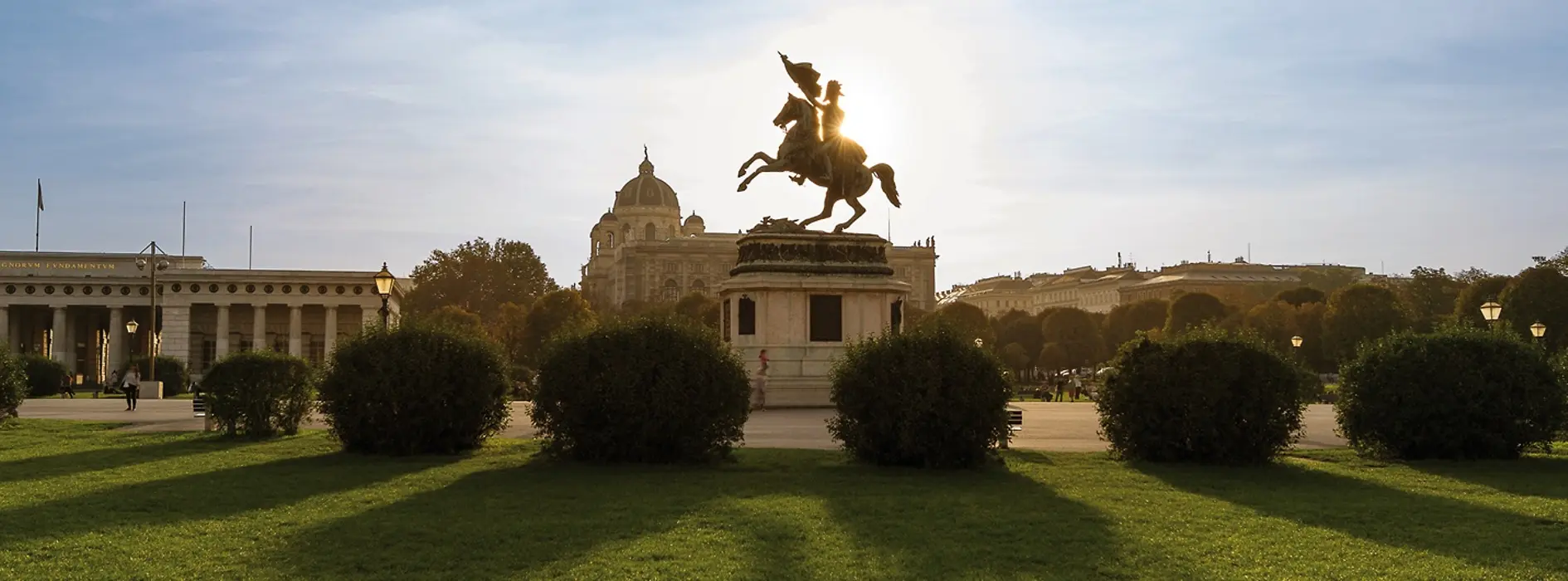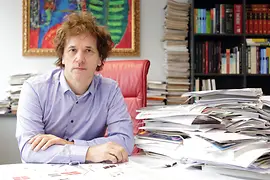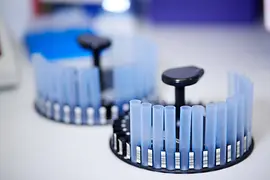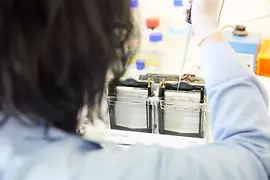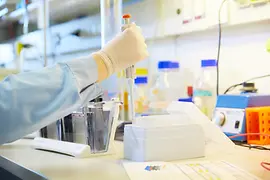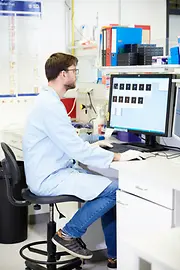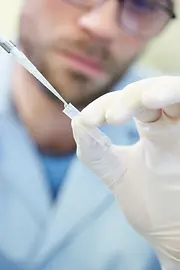"The reaction in Austria has been unbelievably fast"
Since 2005, he has been developing a SARS drug that could be adapted for coronavirus with Apeiron, the Viennese company he founded, which is located on the Vienna Biocenter campus. Penninger has discovered how coronaviruses invade human cells and has developed an active ingredient for the treatment of COVID-19 patients with his team. This should now be tested on patients.
Penninger's company is supported by the Vienna Business Agency, the Medical University of Vienna, the Austrian Research Promotion Agency (FFG), the Austria Wirtschaftsservice Gesellschaft (AWS, a federal development and financing bank), and other companies. It would be a huge success for Vienna as a successful biotech location for the first effective drug against COVID-19 to be developed here.
From 2003 to 2018, Penninger was head of the Institute of Molecular Biotechnology (IMBA) at the Academy of Sciences in Vienna. Two years ago, he then took over management of the Life Science Institute at the University of British Columbia in Vancouver, Canada.
We spoke with Penninger about his research.
Austria has got an amazingly good grip on the pandemic; the numbers of cases in Vienna are very low compared to other large cities. How is that?
Josef Penninger: Because compared to other countries, Austria reacted incredibly fast. Praise is due for how quickly the measures were put in place and with great consistency.
What is your point of contact with the virus?
In 1998, my team and I were looking at which genes control the development of fly hearts and we discovered ACE2. This has since become perhaps the most researched protein on the planet, the loophole through which coronaviruses invade human cells. I was advised at the time to let it drop, it was a dead end. Luckily, we continued.
You are right up front in the search for a therapy with the company Apeiron, which you founded in Vienna. What really matters now?
To recruit patients as quickly as possible to find out whether the active ingredient keeps its promise in practice.
What kind of ecosystem is needed for biotechnologies to spread?
The most important thing are great, internationally networked universities that attract talents. That was the case in Stanford, and is no different in Harvard. The big centers that have changed the world with new technologies are all connected to a university, where people went a little nuts and started developing things. And – it needs an atmosphere that favors the establishment of companies. Otherwise things stop with the research.
You can't duck the coronavirus and hope it will disappear when the temperatures rise in the summer?
Probably not. We are now in the fifth month since the outbreak in China. SARS lasted for ten to twelve months in 2003, with 8,000 cases. Coronavirus has spread around the planet and will certainly be with us for several years, if not decades.
So you have to continue researching?
The most important thing is to find a means for taking the sting out of the disease – and then a vaccination. But that will take a while. More time will pass until the entire planet has been immunized.
For many people, research is something abstract. With SARS-Cov-2, the pathogen involved in COVID-19, there is now a virus that is generating a huge amount of interest in how to combat it. Is that a good or bad thing for the researchers?
Both. On one hand, COVID-19 has resulted in people understanding how important research is. On the other, all research disciplines are suffering from the fact that the majority of funds are now flowing into combating SARS-Cov-2.
Assuming there will be a drug or even a vaccination against coronavirus in the foreseeable future, how likely is it that this medication will be rapidly available in Austria?
We are developing a drug for people who are already seriously ill with COVID-19. We now have to drive the study forward, but at the same time we have already started with small-scale, local production. If we see the effects we are all hoping for, we can certainly increase the volume. The production of vaccines is more difficult. The world lacks the capacities to manufacture new vaccines by the billion.
So until then, we continue to socially distance and wash our hands?
And also continue wearing masks.
